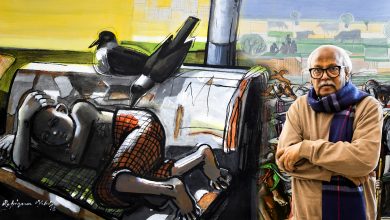In Bangladesh’s modern art scene, renowned artist Ranjit Das is distinguished by his distinct style, which combines abstract ideas with intensely meaningful personal experiences. Mr. Das, who was born in Tangail in 1956, was involved in painting at a young age. At the Bangladesh College of Arts and Crafts, from which he graduated in 1975, his academic foundation was established. In 1981, he earned his MFA from the M.S. University of Baroda in India, where his quest for artistic brilliance led him. Since then, Ranjit Das has made a name for himself in the art world by persistently investigating the dynamic intersections of form, content, and cultural traditions.
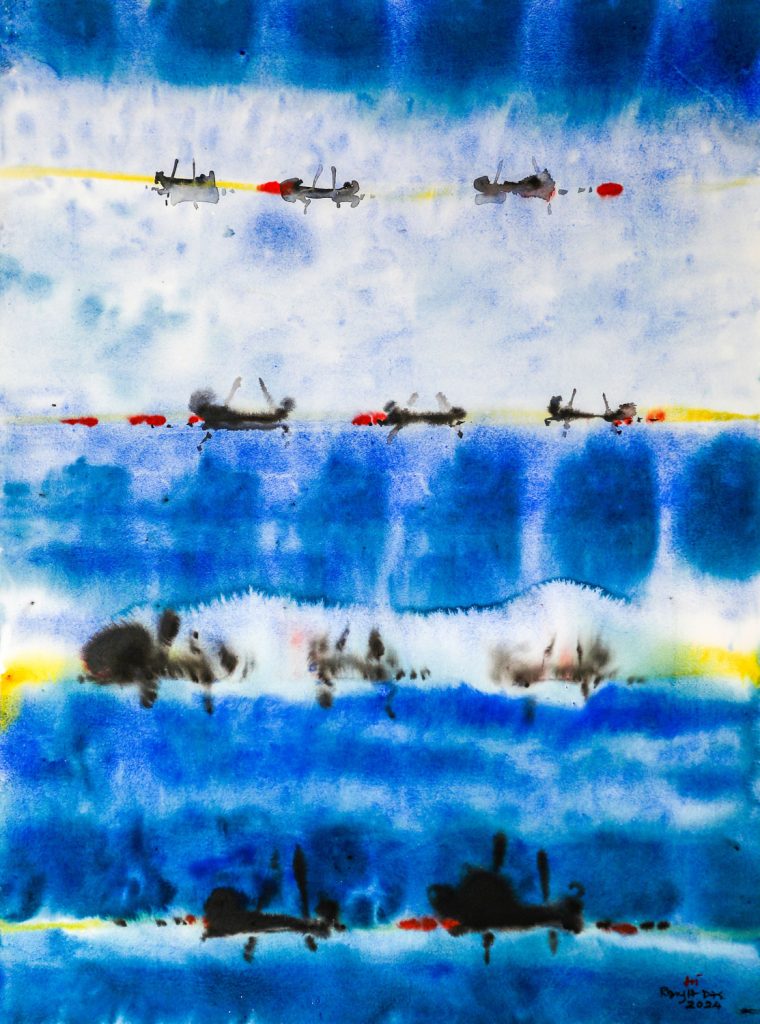
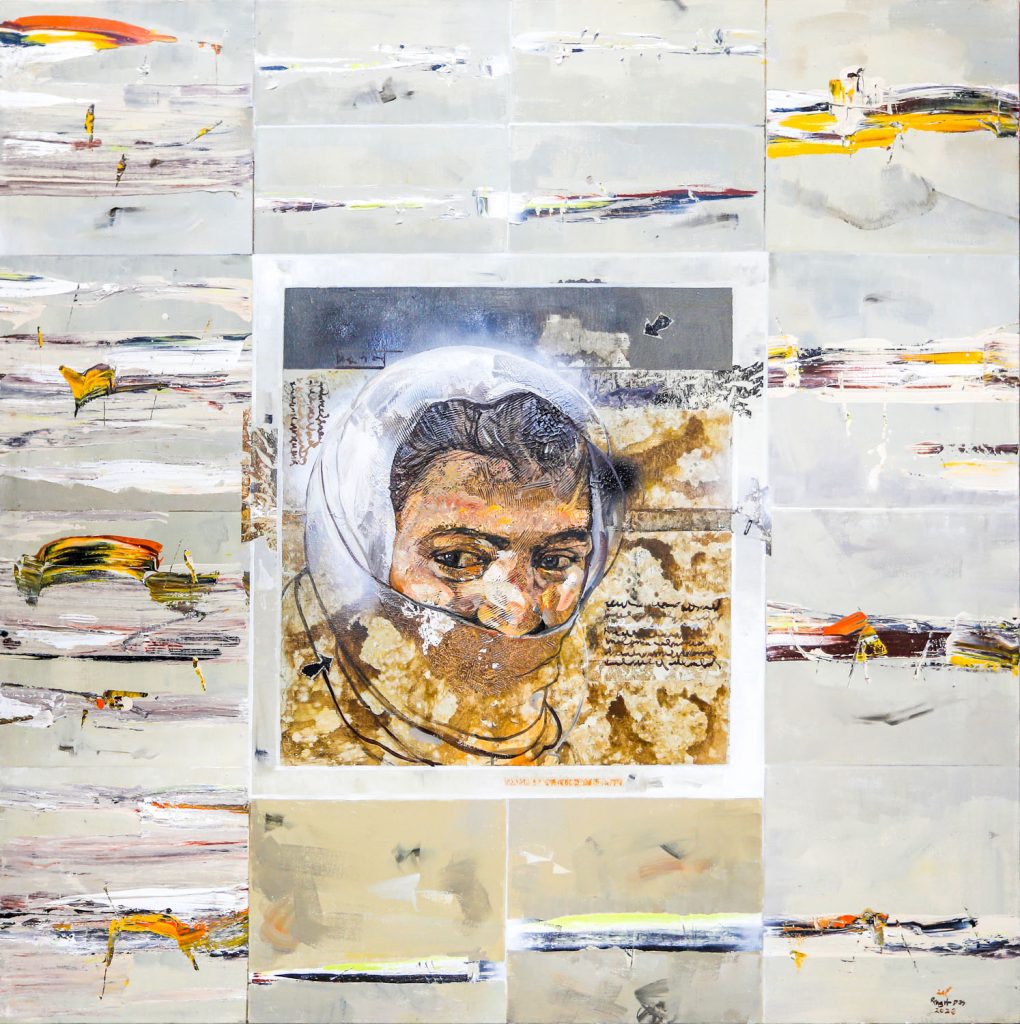
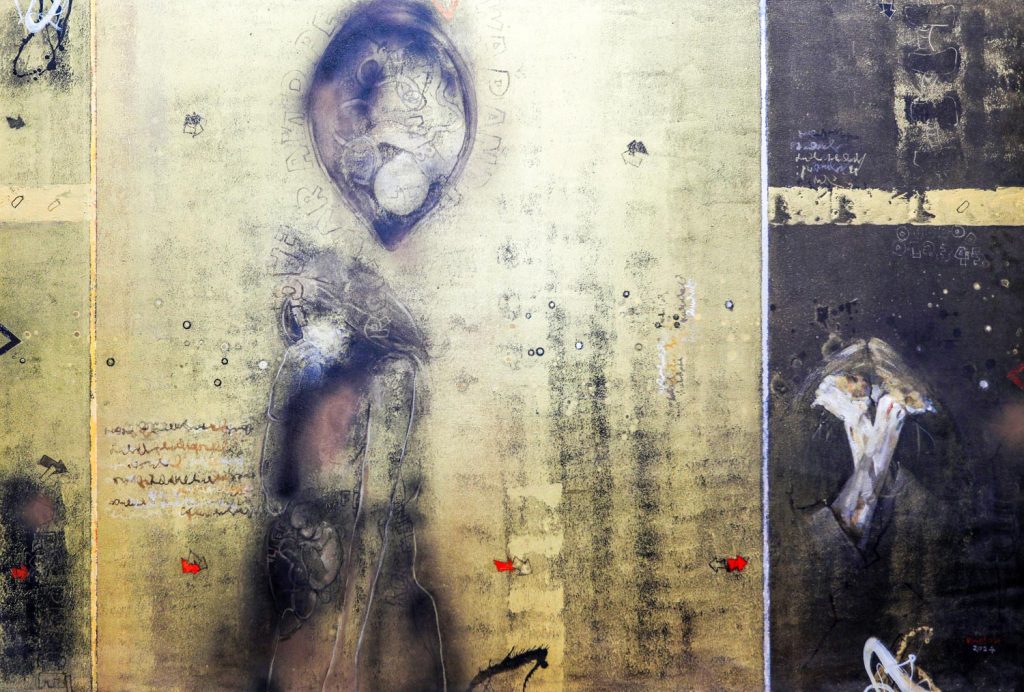
After winning the Grand Award at the Asian Art Biennale Bangladesh in 1995, Ranjit Das initially gained national attention. That being said, he had already received a number of noteworthy awards for his artistic endeavors. These included the Honourable Mention Awards from the 9th National Art Exhibition in Dhaka (1990), the 5th Asian Art Biennale (1991), the Best Award (Painting) from the 8th Young Artists Art Exhibition in 1988, and the 2nd Award from the 18th International Miniature Show in Florida, USA (1993). The intricate relationship between nature and human existence is profoundly explored in Ranjit Das’s works.
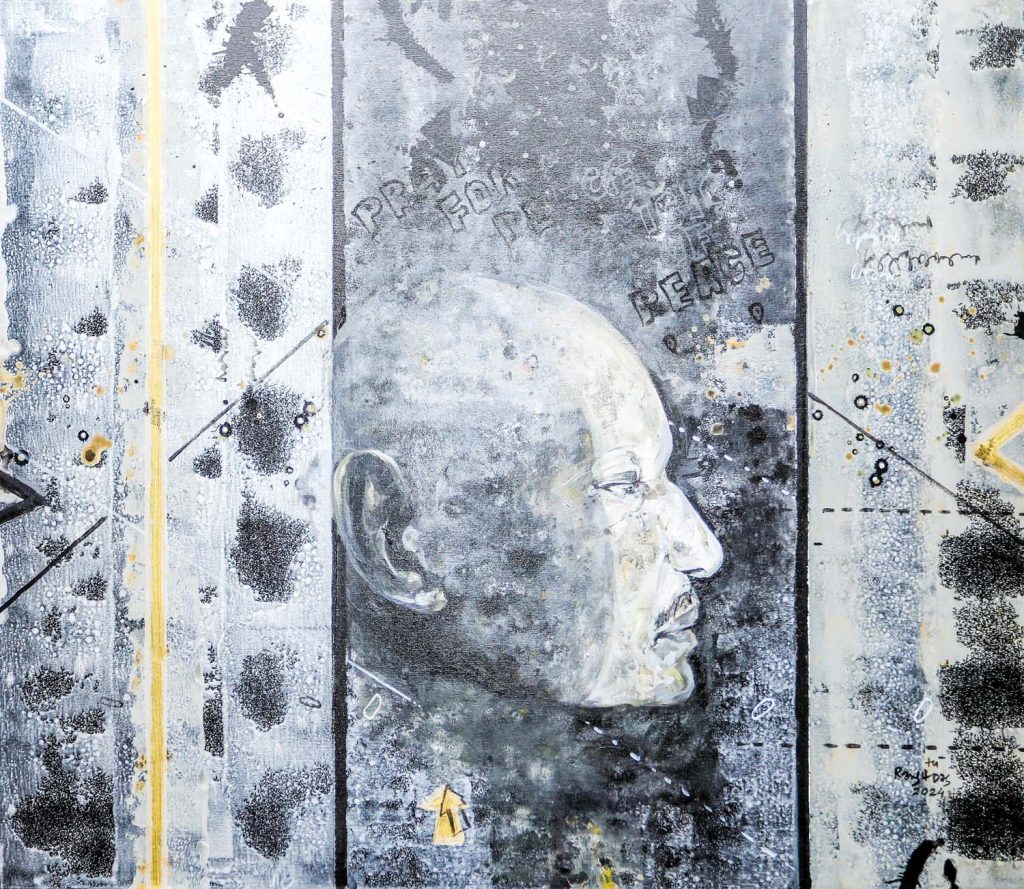
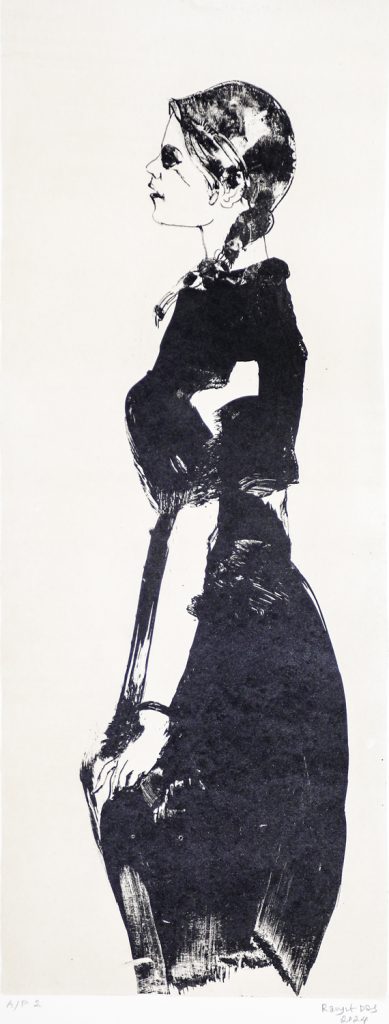

The abstract yet fundamental links that unite nature, human behavior, and prior experiences are explored in great detail in his paintings.
By combining poetry and prose deftly in his visual narratives, he creates art that participates in a poetic dialogue with the natural world. With the help of ephemeral moments of raw beauty and the intangible elements of life that mold our experiences, each piece depicts a tale of metamorphosis.
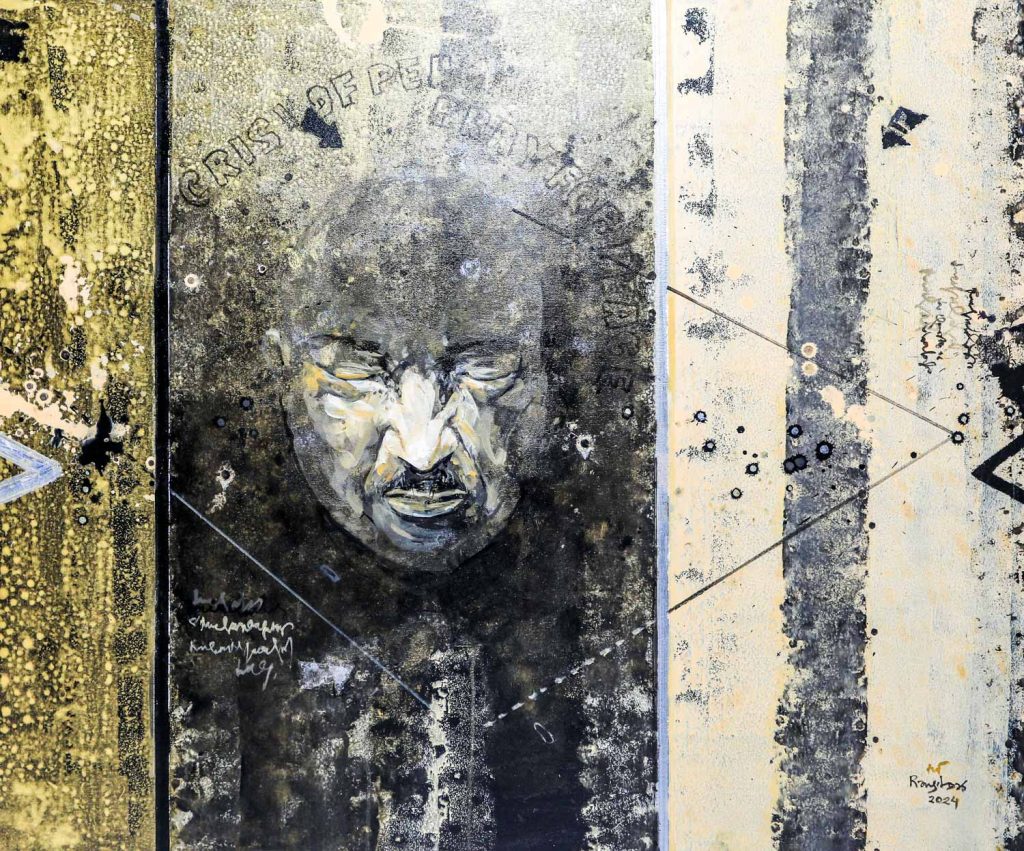
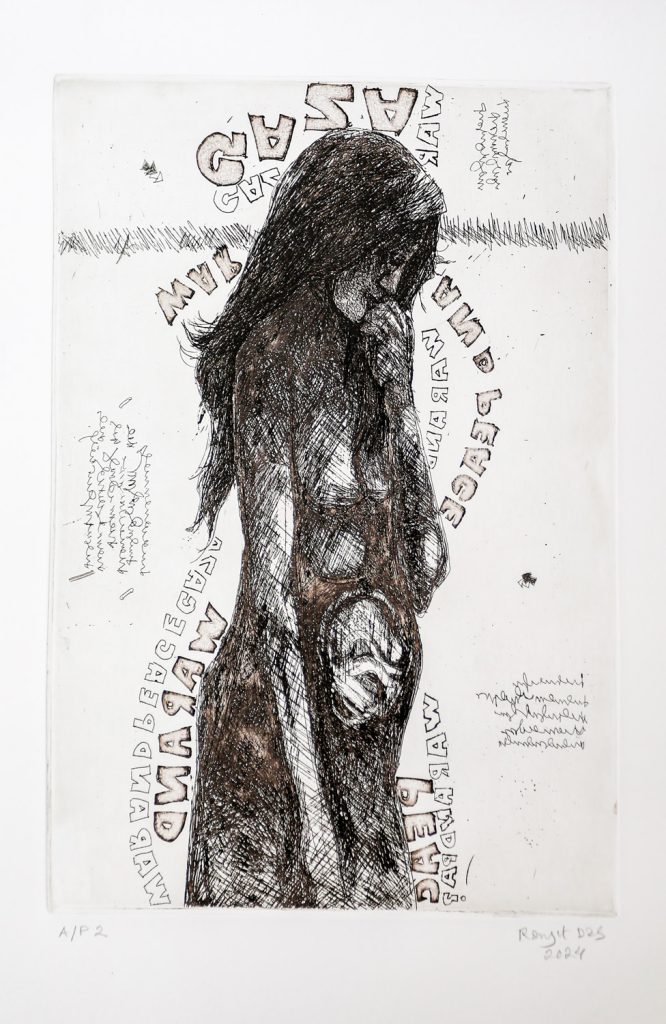
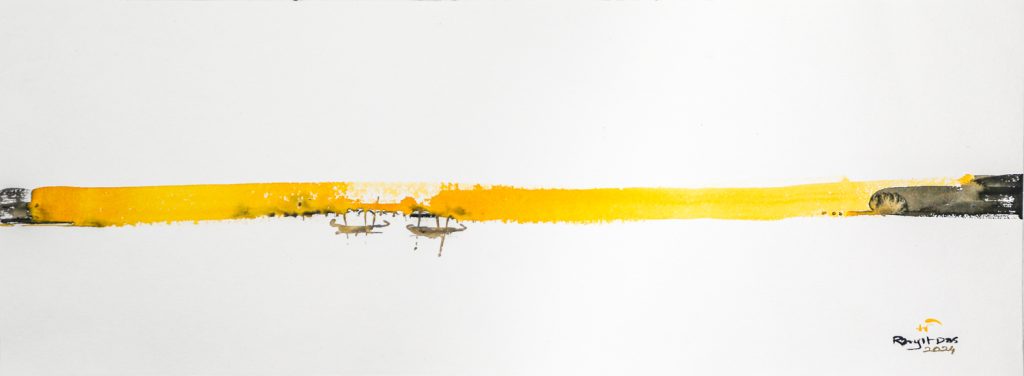
Ranjit Ranjit Das’s artistic ethos is based on the idea that each painting should create a special kind of beauty, form, and color that arises naturally from the artist’s spirit. For him, creating art is an investigation into color, space, and spontaneity. His use of schematic symbols, where the chaos of existence is recorded by notes that jump and fall, and the stability of life is represented by steady, accent-free sounds, is indicative of this artistic quest. Together, these components form a visual language that expresses both the consistency and unpredictable nature of existence.
A wide range of artistic traditions and masters serve as inspiration for Ranjit Das.
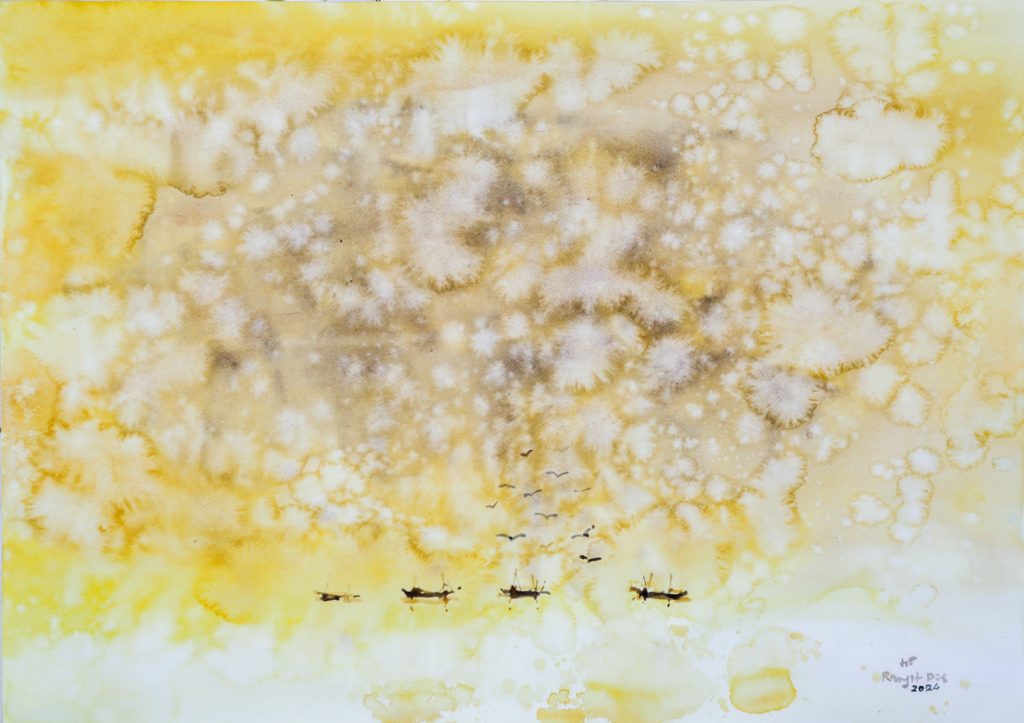
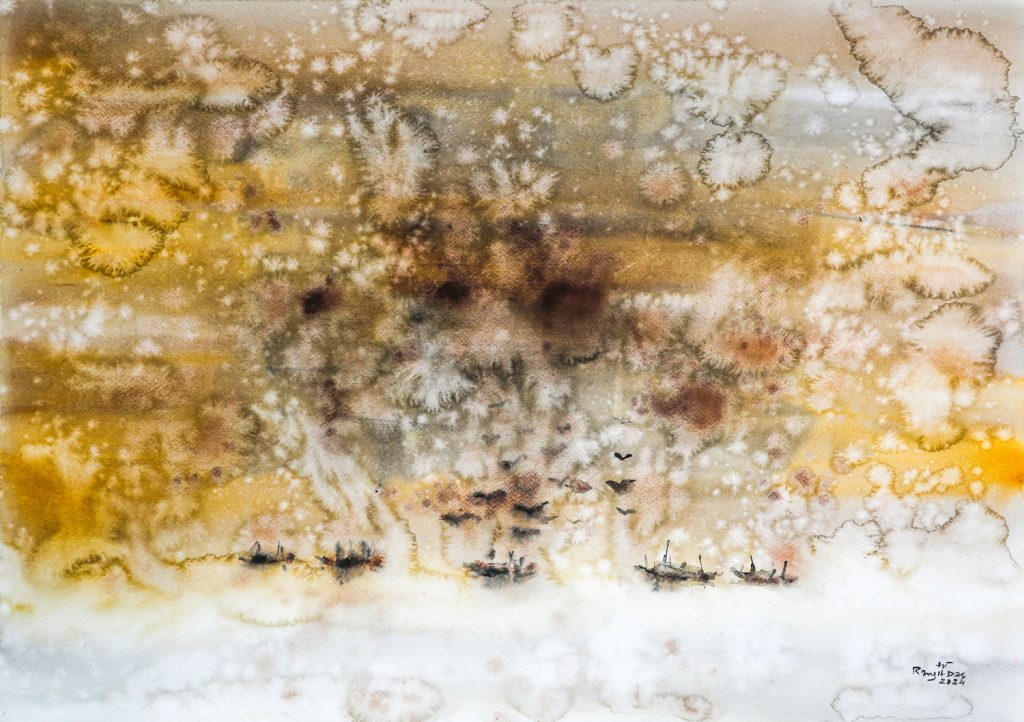
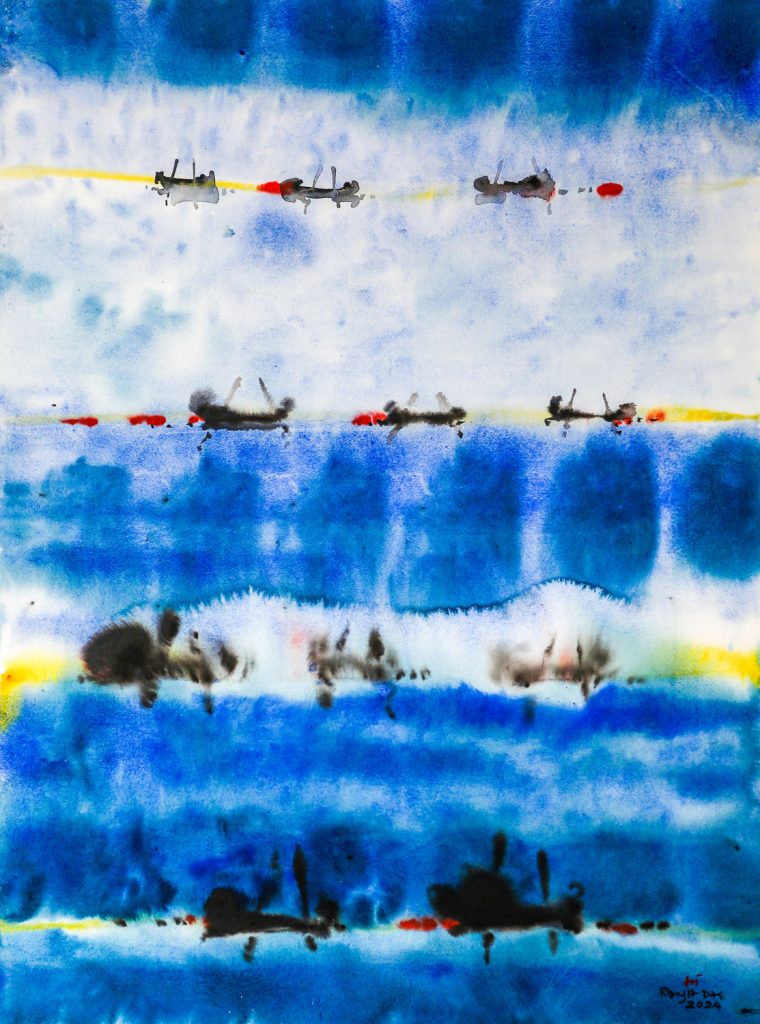
A deep influence on his artistic expression has come from the paintings of Rembrandt, Matisse, Mondrian, Picasso, and Van Gogh. Along with these Western inspirations, he draws inspiration from the music, dance, and poetry of the Middle East, India, and the Far East. In addition to expanding his creative lexicon, this varied cultural involvement challenges his methods of creation.
With solo shows in Kolkata, Mumbai, Karachi, Montreal, Hyderabad, New Delhi, and other places, Ranjit Das has shown his artwork all throughout Bangladesh and abroad over the years. Prominent solo shows include those that took place in 2002 at Mumbai’s Jehangir Art Gallery, at the Bengal Gallery of Fine Arts in Dhaka in 2000 and 2009, and in 2008 at Shilpangan Art Gallery in Dhaka with Symphony in Drawing. His ability to work with audiences from different cultural backgrounds has been further solidified by his global presence.
In addition to painting, Ranjit Das has a strong affinity for music, especially Rabindra Sangeet, a style of Rabindranath Tagore songwriting. His passion for music began in his early years when he took up singing and tabla playing. Due to his upbringing in a multicultural setting, Das has an integrated aesthetic sensibility that encompasses performance, music, and visual arts. His paintings have a lyrical aspect due to his multidisciplinary background, where colors reverberate like melodies and brushstrokes like musical notes.
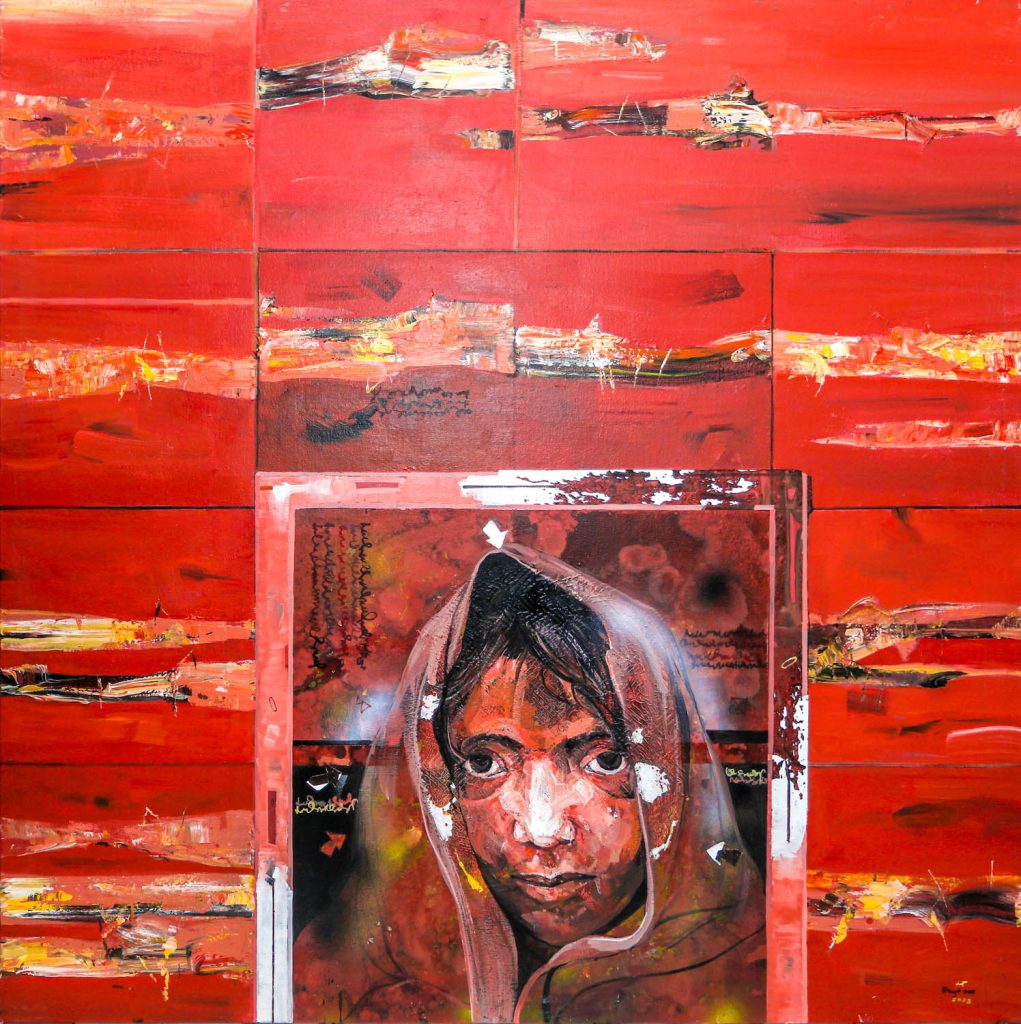
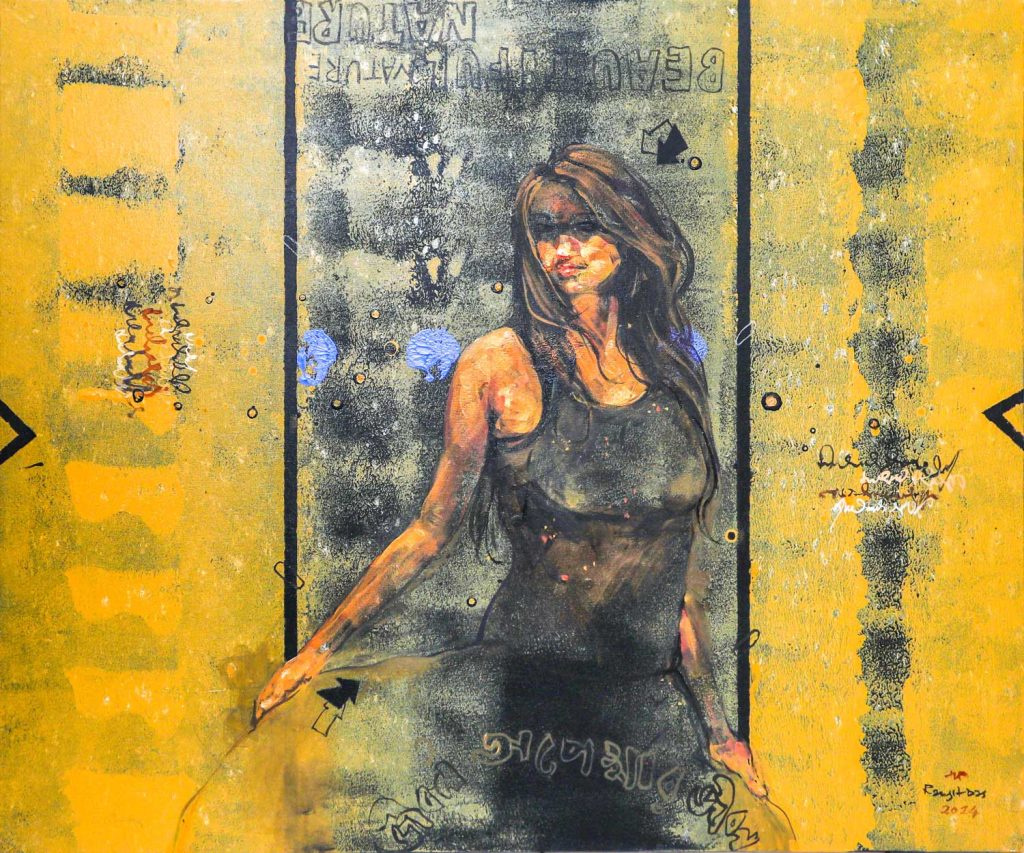
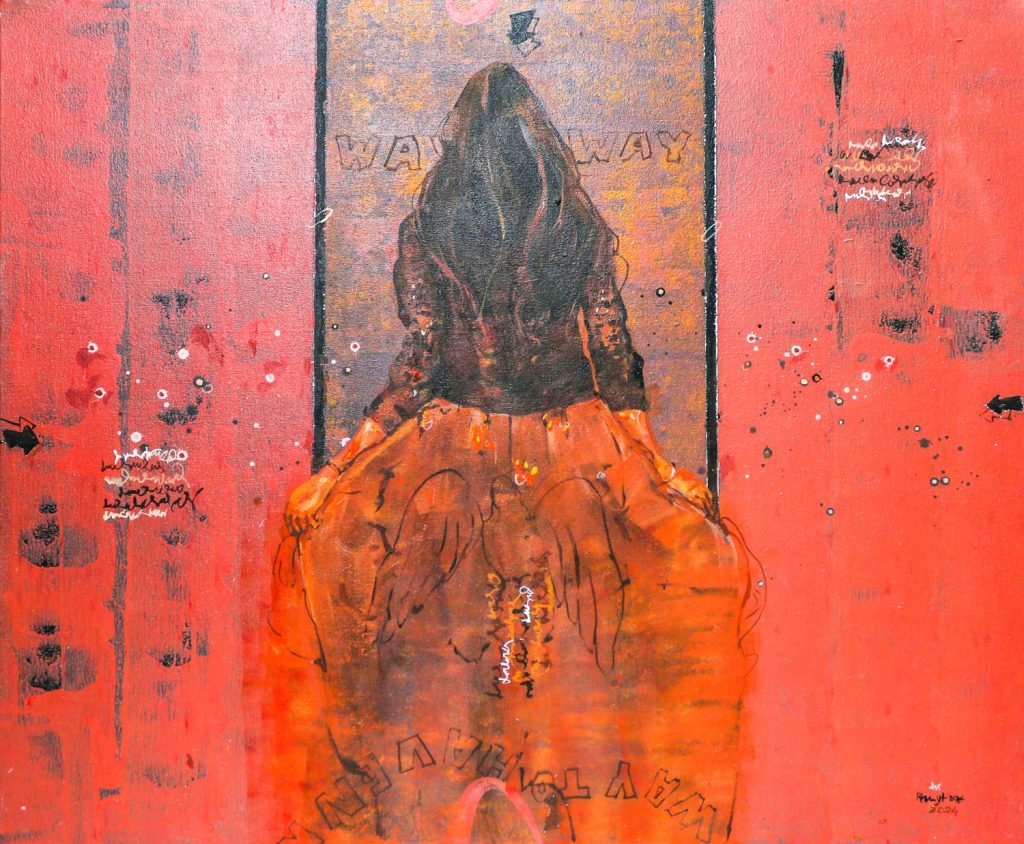
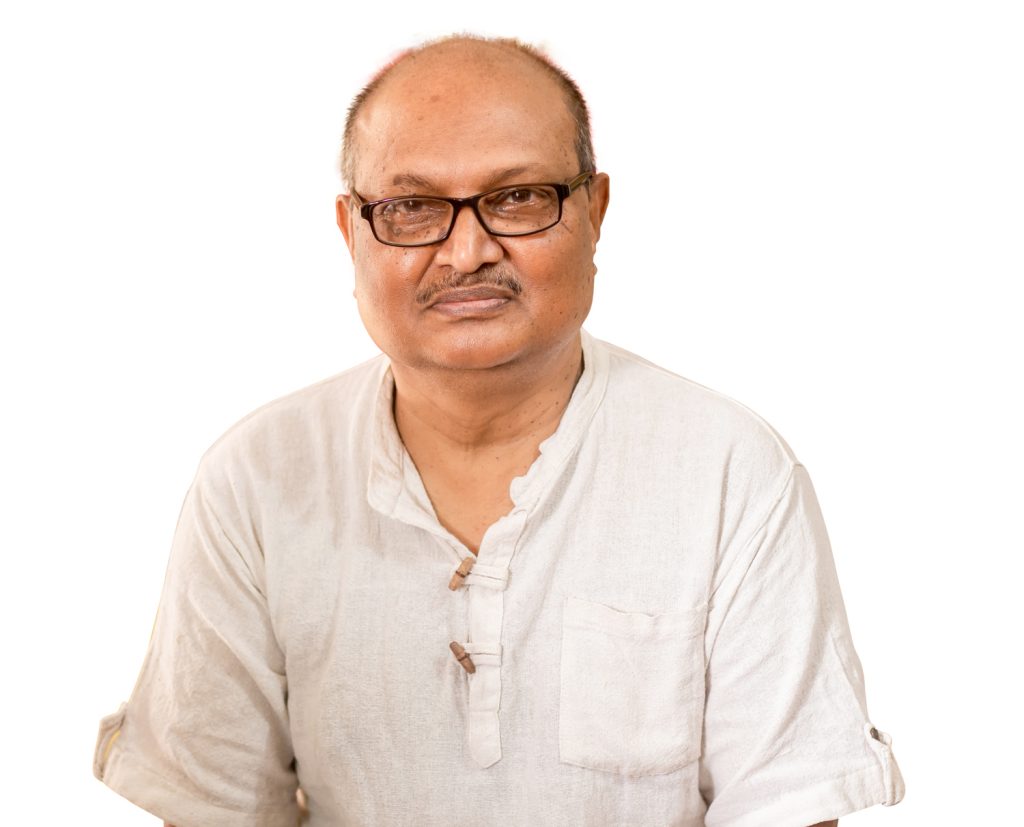
Ranjit Das’s visual language is always changing. Looking ahead, he finds himself drawn to contemporary art genres like installations and video art. He finds new opportunities for experimentation and expression in the ever-expanding field of contemporary art. His art is kept current, vibrant, and ever-new because of his forward-thinking methodology. Even with his great successes, Ranjit Das is still modest and devoted to his work. He continued to create in his Narayanganj studio, where he dedicated himself to the pursuit of artistic creativity, after retiring as a teacher from the Teacher’s Training College in Dhaka. His many honors and accolades, such as the Grand Award at the 7th Asian Biennale Bangladesh in 1995 and the Best Award for Oil Painting at the Government College of Arts and Crafts Annual Art Exhibition in 1975, bear witness to his unwavering commitment to and impact on the art world. The path taken by Ranjit Das is an amazing fusion of creativity and tradition.
His creations are timeless and relevant, bridging the gap between traditional art forms and modern interpretations.
His works of art are a reflection of the world we live in, but they go beyond the mundane to provide spectators an insight into the deep relationships that shape our lives. His artwork implores us to pause, contemplate, and take in the beauty found in the relationship between the natural world, people, and artistic expression.

